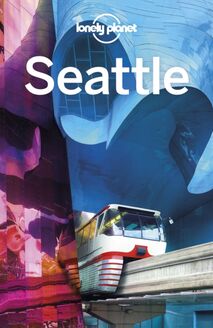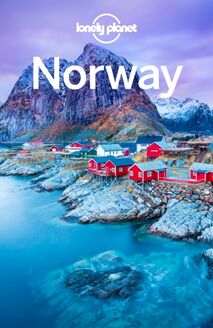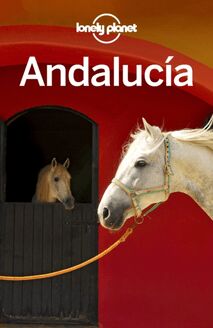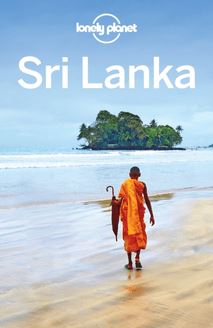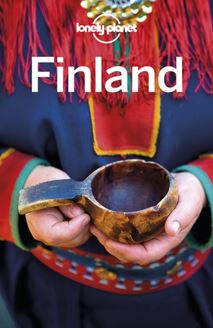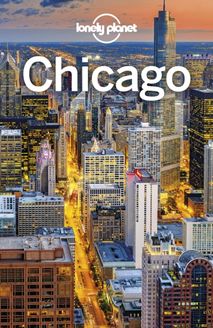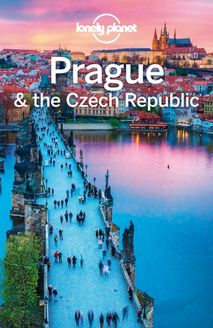Lonely Planet Tibet , livre ebook
363
pages
English
Ebooks
2019
Vous pourrez modifier la taille du texte de cet ouvrage
Obtenez un accès à la bibliothèque pour le consulter en ligne En savoir plus
Découvre YouScribe en t'inscrivant gratuitement
Découvre YouScribe en t'inscrivant gratuitement
363
pages
English
Ebooks
2019
Vous pourrez modifier la taille du texte de cet ouvrage
Obtenez un accès à la bibliothèque pour le consulter en ligne En savoir plus
Publié par
Date de parution
01 mai 2019
Nombre de lectures
4
EAN13
9781788685832
Langue
English
Poids de l'ouvrage
44 Mo
Publié par
Date de parution
01 mai 2019
Nombre de lectures
4
EAN13
9781788685832
Langue
English
Poids de l'ouvrage
44 Mo
Tibet
Contents
PLAN YOUR TRIP
Preface
Welcome to Tibet
Tibet’s Top 20
Need to Know
If You Like…
Month by Month
Itineraries
Qīngh i–Tibet Railway
Tours & Permits
Regions at a Glance
ON THE ROAD
LHASA
Around Lhasa
Drepung Monastery
Nechung Monastery
Sera Monastery
Pabonka Monastery
Ganden Monastery
Drak Yerpa
Drölma Lhakhang
Shuksip Nunnery
Ü
Northern Ü
Tsurphu Valley
Nam-tso
Reting Valley
Lhundrub County
Medro Gongkar County
Lhoka Prefecture
Samye
Tsetang
Yarlung Valley
Chongye Valley
Mindroling
Dratang
Gongkar
TSANG
Lhasa to Nangartse
Nangartse
Gyantse
Nyang-chu Valley
Shigatse
Around Shigatse
Sakya
Shegar
Everest Region
Tingri
Lhatse
Kyirong Valley
NGARI
Southern Ngari
Lhatse to Saga
Nepal Border to Saga
Saga
Saga to Drongba
Drongba
Drongba to Paryang
Paryang
Paryang to Hor Qu
Northern Ngari
Raka to Tsochen
Tsochen
Tsochen to Gertse
Gertse
Gertse to Gegye
Gegye
Gegye to Ali
Far West Ngari
Ali
Rutok
Guge Kingdom
Tirthapuri
Darchen & Mt Kailash
Lake Manasarovar
Purang
EASTERN TIBET
Nyingtri Prefecture
Draksum-tso
Bāyī
Bakha Island
Pomi
Chamdo Prefecture
Rawok
Pasho
Pomda
TIBETAN TREKS
Planning Your Trek
What to Bring
Maps
Trekking Agencies
Permits
On The Trek
Guides & Pack Animals
Food
Drink
Trekking Routes
Ganden to Samye
Tsurphu to Dorje Ling
Shalu to Ngor
Mt Kailash Kora
More Treks
Lake Manasarovar Kora
Everest Advance Base Camps
Everest East Face
GATEWAY CITIES
Kathmandu
Chéngdū
Xīníng
UNDERSTAND
Tibet Today
History
Tibetan Landscapes
The People of Tibet
Tibetan Buddhism
Tibetan Art
Food & Drink
The Future of Tibet
SURVIVAL GUIDE
Directory A-Z
Accessible Travel
Accommodation
Activities
Children
Climate
Customs Regulations
Electricity
Embassies & Consulates
Insurance
Internet Access
Language Courses
Legal Matters
LGBT+ Travellers
Maps
Money
Opening Hours
Photography
Post
Public Holidays
Safe Travel
Telephone
Time
Toilets
Tourist Information
Visas
Volunteering
Weights & Measures
Women Travellers
Transport
Getting There & Away
Getting Around
Health
Language
Behind the Scenes
Our Writers
Preface
The issue of Tibet is not nearly as simple and clear cut as the Chinese government often tries to make out. I believe that there are still widespread misunderstandings about Tibetan culture and misapprehensions about what is happening inside Tibet. Therefore, I welcome every opportunity for open-minded people to discover the reality of Tibet for themselves.
In the context of the growing tourist industry in Tibet, the Lonely Planet travel guide makes an invaluable contribution by providing reliable and authoritative information about places to visit, how to get there, where to stay, where to eat and so forth. Presenting basic facts and observations allows visitors to prepare themselves for what they will encounter and exercise their own choice.
There is a Tibetan saying: ‘The more you travel, the more you see and hear.’ At a time when many people are not clear about what is actually happening in Tibet, I am very keen to encourage whoever has the interest to go there and see for themselves. Their presence will not only instil a sense of reassurance in the Tibetan people, but will also exercise a restraining influence on the Chinese authorities. What’s more, I am confident that once they return home they will be able to report openly on what they have seen and heard.
Great changes have lately taken place in this part of the world. Recent events have made it very clear that all Tibetans harbour the same aspirations and hopes. I remain confident that eventually a mutually agreeable solution will be found to the Tibetan problem. I believe that our strictly non-violent approach, entailing constructive dialogue and negotiation, will ultimately attract effective support and sympathy from within the Chinese community. In the meantime, I am also convinced that as more people visit Tibet, the numbers of those who support the justice of a peaceful solution will grow.
I am grateful to everyone involved in the preparation of this 10th edition of the Lonely Planet guide to Tibet for the care and concern they have put into it. I trust that those who rely on it as a companion to their travels in Tibet will enjoy themselves in what, despite all that has happened, remains for me one of the most beautiful places on earth.
July 2018
Prayer flags at Yamdrok-tso | SARA SPADACCINI / SHUTTERSTOCK ©
Welcome to Tibet
Tibet offers fabulous monasteries, breathtaking high-altitude walks, stunning views of the world’s highest mountains and one of the most likeable cultures you will ever encounter.
A Higher Plain
For many visitors, the highlights of Tibet will be of a spiritual nature: magnificent monasteries, prayer halls of chanting monks, and remote cliffside meditation retreats. Tibet’s pilgrims – from local grandmothers murmuring mantras in temples heavy with the aromas of juniper incense and yak butter to hard-core professionals walking or prostrating themselves around Mt Kailash – are an essential part of this experience. Tibetans have a level of devotion and faith that seems to belong to an earlier, almost medieval age. It is fascinating, inspiring and endlessly photogenic.
The Roof of the World
Tibet’s other big draw is the elemental beauty of the highest plateau on earth. Geography here is on a humbling scale and every view is illuminated with spectacular mountain light. Your trip will take you past glittering turquoise lakes, across huge plains dotted with yaks and nomads’ tents, and over high passes draped with colourful prayer flags. Hike past the ruins of remote hermitages, stare open-mouthed at the north face of Everest or make an epic overland trip along some of the world’s wildest roads. The scope for adventure is limited only by your ability to get permits.
Politics & Permits
There’s no getting away from politics here. Whether you see Tibet as an oppressed, occupied nation or an underdeveloped province of China, the normal rules of Chinese travel simply don’t apply. Restrictions require foreign travellers to pre-arrange a tour with a guide and transport for their time in Tibet, making independent travel impossible. On the plus side, new airports, boutique hotels and paved roads offer a level of comfort unheard of just a few years ago, so if the rigours of Tibetan travel have deterred you in the past, now might be the time to reconsider.
The Tibetan People
Whatever your interests, your lasting memories of Tibet are likely to be of the bottle of Lhasa Beer you shared in a teahouse, the yak-butter tea offered by a monk in a remote monastery or the picnic enjoyed with a herding family on the shores of a remote lake. Always ready with a disarming smile, and with great tolerance and openness of heart despite decades of political turmoil and hardship, the people truly make travelling in Tibet a profound joy. Make sure you budget time away from your pre-planned tour itinerary to take advantage of these chance encounters.
Tashilhunpo Monastery , Shigatse | RATNAKORN PIYASIRISOROST / GETTY IMAGES ©
Why I Love Tibet
By Bradley Mayhew, Writer
For me Tibet is a uniquely spiritual place. Those moments of peace, fleeting and precious, when everything seems to be in its proper place, just seem to come more frequently here. Despite the overpowering pace of change and a sobering political situation, underpinning everything for me are the Tibetan people, whose joy and devotion remain deeply inspiring. Tibet is a place that will likely change the way you see the world and remain with you for years to come. And that for me is the definition of the very best kind of travel.
For more, see Our Writers
Tibet’s Top 20
Mt Kailash, Ngari
Worshipped by more than a billion Buddhists and Hindus, Asia’s most sacred mountain rises from the Barkha plain like a giant four-sided 6714m chörten (Buddhist stupa). Throw in the stunning nearby Lake Manasarovar and a basin that forms the source of four of Asia’s greatest rivers, and who’s to say this place really isn’t the centre of the world? Travel here to one of the world’s most beautiful and remote corners brings an added bonus: the three-day pilgrim path around the mountain erases the sins of a lifetime.
Pilgrims completing the kora around the mountain. | YONGYUT KUMSRI / SHUTTERSTOCK ©
Top Experiences
Barkhor Circuit, Lhasa
You never know quite what you’re going to find when you join the centrifugal tide of Tibetans circling the Jokhang Temple on the Barkhor Circuit . Pilgrims and prostrators from across Tibet, stalls selling prayer wheels and turquoise, Muslim traders, Khampa nomads in shaggy cloaks, women from Amdo sporting 108 braids, thangka (religious painting) artists and Chinese military patrols are all par for the course. It’s a fascinating microcosm of Tibet and a place you’ll come back to again and again.
DOMINIC BYRNE / AGE FOTOSTOCK ©
Top Experiences
Potala Palace, Lhasa
There are moments in travel that will long stay with you, and your first view of Lhasa’s iconic Potala Palace is one such moment. A visit to the former home of the Dalai Lamas is a spiralling descent past gold-tombed chapels, opulent reception rooms and huge prayer halls into the bowels of a medieval castle. It’s nothing less than the concentrated spiritual and material wealth of a nation. Finish by joining the pilgrims on a walking kora (pilgrim circuit) of the entire grounds.
HUNG CHUNG CHIH / SHUTTERSTOCK ©
Top Experiences
Jokhang Temple, Lhasa
The atmosphere of hushed awe is what hits you first as you inch through the dark, medieval passageways of the Jokhang , Lhasa’s most sacred temple. Queues of wide-eyed pilgrims shuffle up and down the stairways, past

